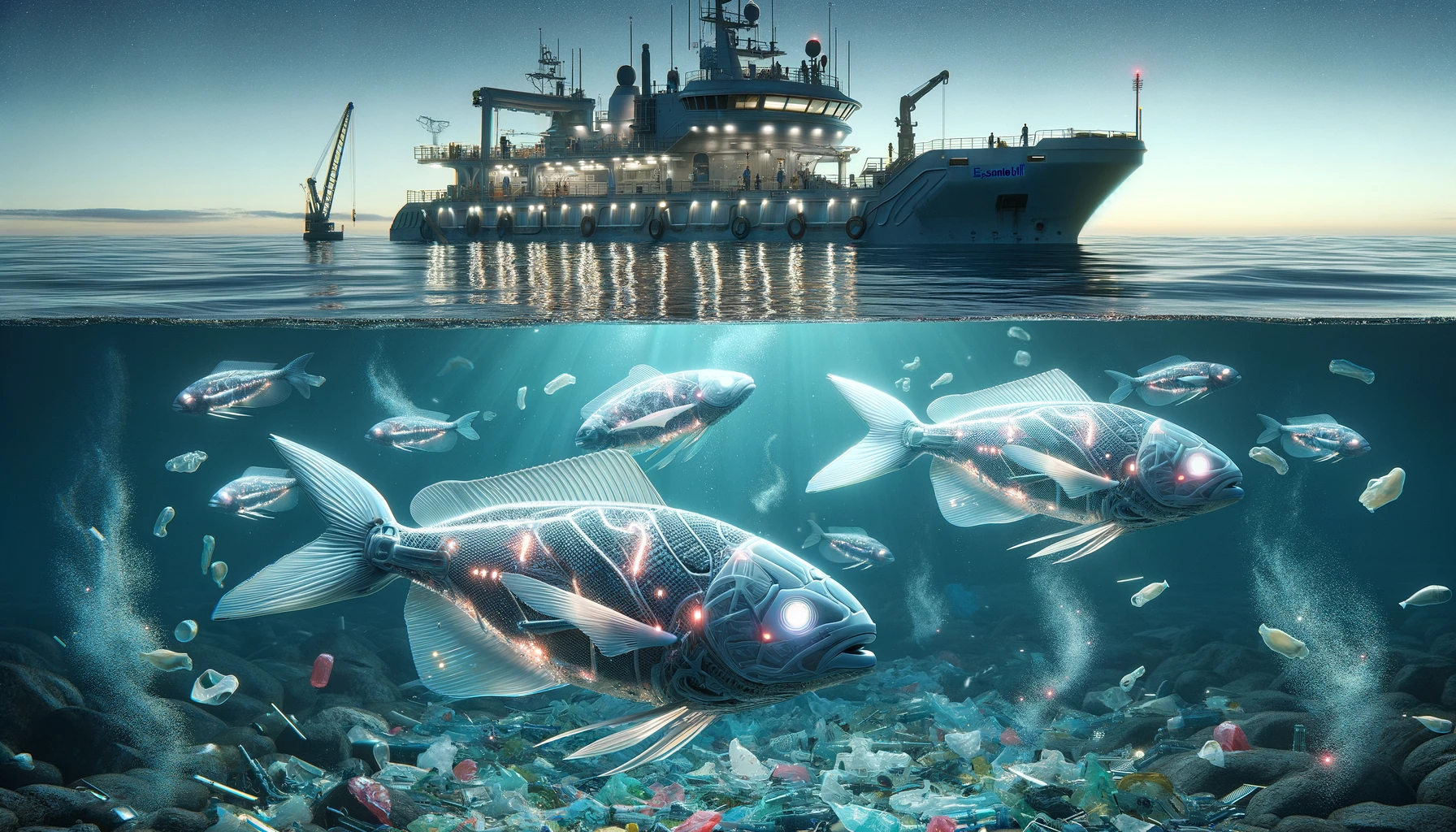Houston, TX — In what the company is hailing as a revolutionary environmental breakthrough, ExxonMobil has announced the development of genetically engineered plastic-eating fish, claiming the innovation will single-handedly solve the global plastic pollution crisis.
The oil giant, traditionally known for its significant contributions to environmental challenges rather than solutions, surprised the world this week with its unveiling of the “EcoGuppy,” a small, unassuming fish that has been bioengineered to thrive on a diet of microplastics. ExxonMobil’s CEO Darren Woods described the initiative as a “bold new chapter in corporate responsibility.”
“At ExxonMobil, we’re committed to addressing the world’s most pressing environmental challenges—after we’ve had our fun creating them,” said Woods during a press conference held at the company’s Houston headquarters. “With the EcoGuppy, we’re not just cleaning up our mess; we’re making it nature’s problem instead of yours.”
The EcoGuppy, according to ExxonMobil, is capable of ingesting up to 50 times its body weight in plastic every day, converting it into harmless byproducts such as corporate press releases and shareholder dividends. The company envisions releasing millions of these fish into the world’s oceans, where they will feast on the plastic debris left behind by decades of irresponsible waste management.
However, environmentalists and marine biologists have expressed skepticism—and outright horror—over the plan. Dr. Marina Green, a marine ecologist, warned that introducing a new species into the ecosystem could have catastrophic consequences. “This is like trying to put out a fire with gasoline,” she said. “If these fish are as hungry for plastic as ExxonMobil claims, we could be looking at massive disruptions to the food chain, not to mention the unforeseen effects of these creatures producing even more plastic-based waste in their droppings.”
But ExxonMobil dismissed these concerns, insisting that they’ve thought of everything. “We’ve run all the simulations,” said a company spokesperson. “Sure, there might be a few hiccups—like the EcoGuppy accidentally developing a taste for real fish instead of plastic—but that’s just nature finding a way.”
In addition to the EcoGuppy, ExxonMobil is reportedly working on a series of other eco-friendly innovations, including a methane-absorbing cow, a smoke-inhaling tree, and a biodegradable oil spill that simply “disappears” into the ocean, leaving nothing but a slightly greasy aftertaste.
Despite the backlash, ExxonMobil’s stock prices have soared since the announcement, with investors eager to capitalize on what the company is calling “the next green revolution.” Meanwhile, the company has launched a massive PR campaign, featuring images of happy, cartoonish EcoGuppies with slogans like “Plastic-Free Seas, Thanks to Me!” and “EcoGuppy: Exxon’s Gift to the Ocean.”
Critics, however, remain unconvinced. “This is just another example of corporate greenwashing,” said a spokesperson for the environmental group Save the Seas. “Instead of taking real responsibility for the damage they’ve caused, ExxonMobil is attempting to distract the public with a flashy, dangerous gimmick. We should be focusing on reducing plastic production, not creating Franken-fish to clean up the mess.”
As ExxonMobil prepares to release its first batch of EcoGuppies into the Pacific Ocean, the world watches with bated breath—and more than a little trepidation. Will the plastic-eating fish save our oceans, or will they become yet another cautionary tale of corporate hubris?
One thing is certain: if the oceans are to be saved, ExxonMobil’s EcoGuppy will be leading the charge—whether we like it or not.

